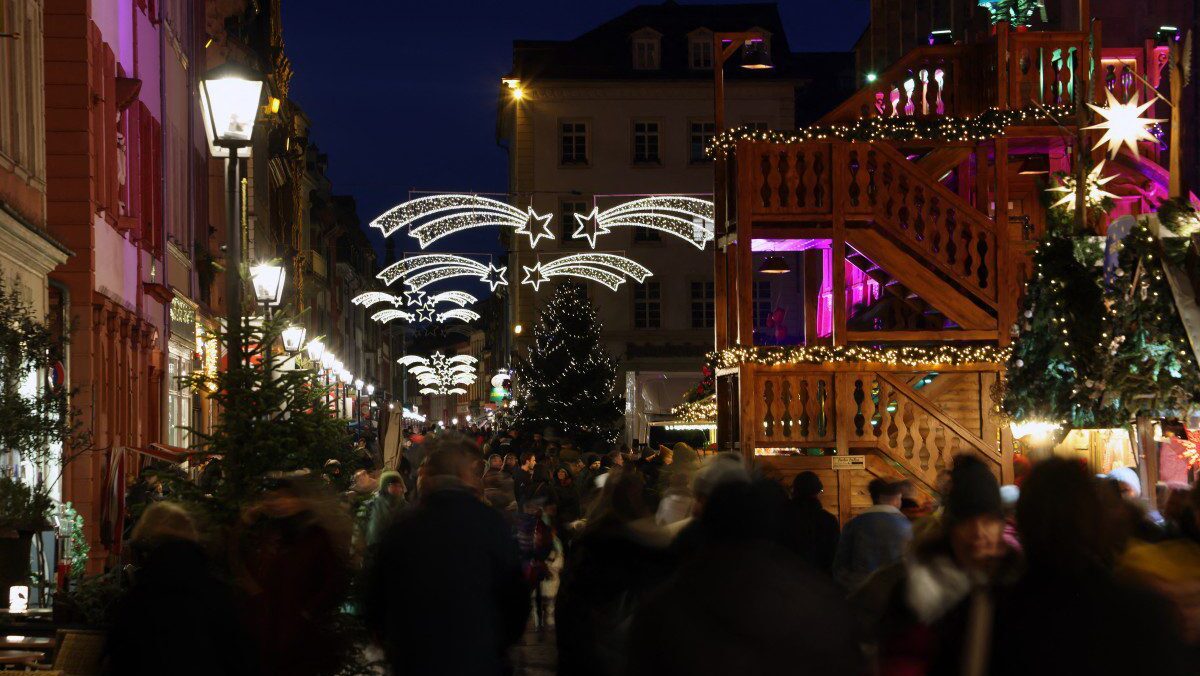
The Christmas Market in Heidelberg, Germany is pictured on December 7th, 2023.
Photo: DANIEL ROLAND / AFP
Across Europe, authorities are increasing security at Christmas markets. This follows the deadly terrorist attack in Paris on December 3rd and a spate of recent arrests in Germany of Islamic State sympathizers plotting to strike at seasonal festivities.
Following the Paris terror attack, Ylva Johansson—EU Commissioner for Home Affairs—indicated that the EU would free up €30 million (£26m) for additional security measures. She also expressed concern that the Israel-Hamas war could increase social polarization, triggering similar incidents.
Earlier in November, European security officials warned of the growing risk posed by Islamist militants, with the most likely threat from “lone wolfs,” attackers who are notoriously difficult to surveil.
Germany has significant cause for concern. In the wake of the foiled terror plans and with the December 19th, 2016 attack in Berlin—in which a truck driver plowed into a crowd of people, killing 12—still fresh in mind, German authorities at the federal and state level are closely working together to identify potential dangers at an early stage while increasing police presence.
Such measures further strain the German police, already deployed to protect Jewish sites against a backdrop of antisemitic incidents.
Jochen Kopelke, Chairman of the police union (GdP), has advised Christmas markets to be monitored more often via video. “Video surveillance at Christmas markets is a helpful tool that should be used intensively using the best technology,” he told RND.
In Germany to date, preventative video surveillance has only been used in isolated cases, since data protection regulations forbid its broader application.
In Frankfurt, special mobile ‘terror barriers’ have been installed, replacing the less aesthetically pleasing ones made of concrete.
The French city of Strasbourg, meanwhile, has mobilized 1,000 police officers and, for the first time, drones, for its hugely popular Christmas market, which expects to welcome nearly three million visitors until it closes on December 24th.
The city still bears the scars of the December 11th, 2018 attack, during which ISIS sympathizer Chérif Chekatt—who died in a shootout with police two days later— opened fire into a crowd at the market, killing five and leaving 11 injured.
This year, military patrols are being increased threefold, to “ensure visibility, deterrence, and reassure fellow citizens,” announced General Ludovic Pinon, Strasbourg’s military governor. Dog teams would supplement the military, while random checks would be carried out at each entrance to the city.
In Belgium, the terror threat level remains at 3, a level to which it was raised following last October’s islamist attack in Brussels. As reported by De Morgen, more heavily armed police will patrol such markets, as “copycats cannot be ruled out,” according to OCAD, Belgium’s threat assessment coordination body.
In a press release from the rightist, anti-mass immigration party Vlaams Belang, MP and chairman of the Home Affairs Committee Ortwin Depoortere said that “our society remains permanently under pressure from Islamic terrorism,” adding that “years of uncontrolled mass immigration, paired with a still insufficient approach to Islamic terrorism, have ensured that the situation must be monitored everywhere.”
Terrorism, he concluded, seems to have become a “fait divers in Western Europe.”
